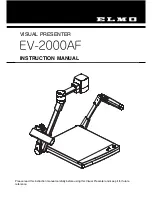
Going home
The first time you start a route home, the device prompts you to
enter your home location.
1
Select
Where To?
>
Go Home
.
2
If necessary, enter your home location.
Editing your home location
1
Select
Where To?
> >
Set Home Location
.
2
Enter your home location.
Your route on the map
As you travel, the device guides you to your destination using
voice prompts and information on the map. Instructions for your
next turn or exit, or other actions appear across the top of the
map.
Next action in the route. Indicates the next turn, exit, or other action
and the lane in which you should travel, if available.
Distance to the next action.
Name of the street or exit associated with the next action.
Route highlighted on the map.
Next action in the route. Arrows on the map indicate the location of
upcoming actions.
Vehicle speed.
Name of the road on which you are travelling.
Estimated arrival time.
TIP:
you can touch this field to change the information it shows
).
Map tools. Provides tools to show you more information about your
route and surroundings.
Active lane guidance
As you approach some turns, exits, or interchanges in your
route, a detailed simulation of the road appears beside the map,
if available. A coloured line indicates the proper lane for the
turn.
Viewing turns and directions
While navigating a route, you can view upcoming turns, lane
changes, or other directions for your route.
1
From the map, select an option:
• To view upcoming turns and directions as you navigate,
select >
Turns
.
The map tool displays the next four turns or directions
beside the map. The list updates automatically as you
navigate the route.
• To view the complete list of turns and directions for the
entire route, select the text bar at the top of the map.
2
Select a turn or direction (optional).
Detailed information appears. An image of the junction may
appear for junctions on major roads, if available.
Viewing the Entire Route on the Map
1
While navigating a route, select anywhere on the map.
2
Select .
Arriving at your destination
When you approach your destination, the device provides
information to help you complete your route.
•
indicates the location of your destination on the map, and a
voice prompt announces you are approaching your
destination.
• When you approach some destinations, the device
automatically prompts you to search for parking. You can
select Yes to find nearby parking areas (
).
• When you stop at your destination, the device automatically
ends the route. If the device does not detect your arrival
automatically, you can select Stop to end your route.
Parking Near Your Destination
Your device can help you find a parking spot near your
destination. When you approach some destinations, the device
automatically prompts you to search for parking.
1
Select an option:
• When the device prompts you, select
Yes
to search for
nearby parking.
• If the device does not prompt you, select
Where To?
>
Categories
>
Parking
, and select >
My Destination
.
2
Select
Filter Parking
, and select one or more categories to
filter parking by availability, type, price, or payment methods
(optional).
NOTE:
detailed parking data is not available in all areas or
for all parking locations.
3
Select a parking location, and select
Go!
>
Add As Next
Stop
.
The device guides you to the parking area.
Finding your last parking spot
When you disconnect the device from vehicle power while the
device is on, your current location is saved as a parking spot.
Select
Apps
>
Last Spot
.
Changing Your Active Route
Adding a location to your route
Before you can add a location to your route, you must be
navigating a route (
).
You can add locations to the middle or end of your route. For
example, you can add a petrol station as the next destination in
your route.
TIP:
to create complex routes with multiple destinations or
scheduled stops, you can use the trip planner to plan, schedule,
and save a trip (
).
1
From the map, select >
Where To?
.
2
Search for a location (
).
3
Select a location.
4
Select
Go!
.
Following a route
7












































